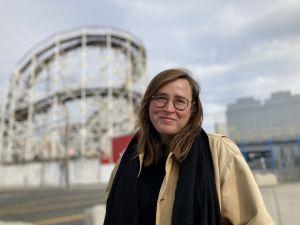
Miriam Chorley-Schulz
Assistant Professor and Mokin Fellow of Holocaust Studies
German & Scandinavian, Judaic Studies Program, Schnitzer School of Global Studies and Languages
Email: miriams@uoregon.edu
Office: 221 Agate Hall, Eugene OR 97403
Office Hours: by appointment
Research Interests: Jewish/Yiddish Studies, Holocaust and Genocide Studies, Fascism Studies, Race, Critical Theory, Psychoanalysis

